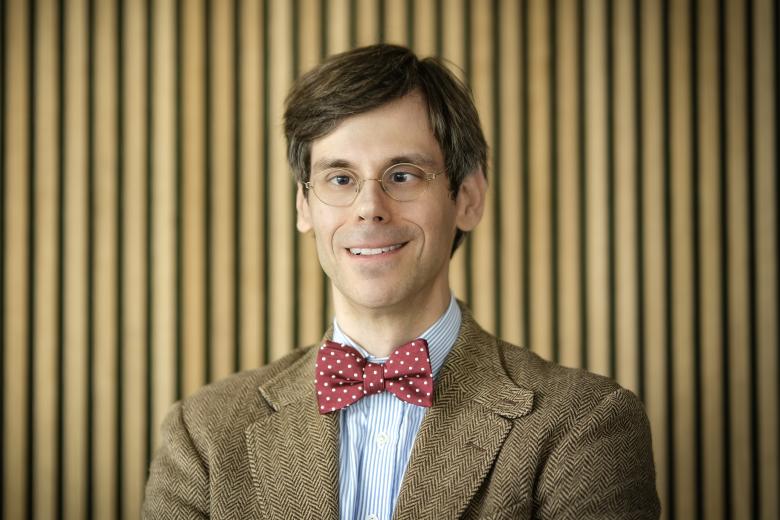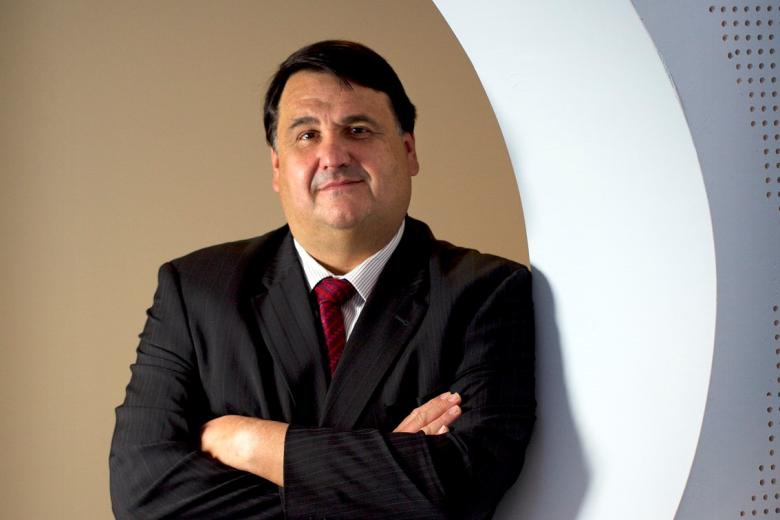The value of knowledge
‘Everything valuable is vulnerable’, wrote one of the greatest Dutch poets, Lucebert, in 1974. Coincidentally, this was also the year that the first fifty students started the medicine programme in Maastricht, even before the official approval from The Hague (the Rijksuniversiteit Limburg was only established in 1976).
If you look through the newspaper archives of the time, it seems that all of Limburg in those early years was convinced of the added ‘value’ a university would have for the region: economic stimulus in the form of jobs, new construction in Randwyck and the preservation of historic buildings in the city centre, the education of more doctors, and so on. Now, forty years down the road, I find that people no longer take the value of a university as ‘a given’. The debate about the value of science and scholarship increasingly fills newspaper columns, and the work of academics is under a magnifying glass, certainly more than it was in the ‘good old days’. You can add a question mark after those last three words, when you look at it from an academic standpoint.
Thanks in part to the research of universities, we now have better drugs to treat several diseases and conditions. At our university, for instance, research is being done on how to combat tuberculosis, which is still a major cause of death worldwide. We also have researchers who advise the government on how to reduce present-day unemployment, or how to deal with forced marriages in the Netherlands. Others are working to understand the human brain at a basal level, which can improve the methods of rehabilitation after a stroke, for example. Also climate change and how it may in the future affect the spread of infectious diseases across the world is being studied in Maastricht. With this brief overview, I’m short-changing a lot of researchers, but it’s just an indication of how a university like ours is working towards a better future in so many different areas.
Most people probably know more about the educational component of a university. We educate doctors, managers, lawyers, psychologists, communication professionals, the researchers of tomorrow and many more. Not all students stay in the Netherlands after graduation—that’s par for the course in the current globalising world—but they are our ambassadors who are still ‘valuable’ to Limburg and the Netherlands. And during their studies, the sixteen thousand students contribute to the lively international atmosphere of Maastricht.
As a university, we invest a lot in our international network, which allows students to become familiar with foreign countries, for example, but which also enriches our research. Four out of ten of our academic staff (who also teach) come from abroad. This brings me to a third ‘valuable’ component: UM as an employer. We started in 1974 with one hundred employees; today the university provides more than three thousand full-time jobs. This makes UM one of the largest employers in Limburg, and even the largest when you count us together with aZM/Maastricht UMC+.
The fourth component, finally, in my view is the ‘value’ the university has for the region. Not only have dozens of companies been built on knowledge that emerged from UM, but we also train people for the regional labour market and work with businesses, governments and other organisations in Limburg and far beyond.
Everything we do at Maastricht University aims to make our society a bit better. Since recently, we have asked our PhD students to describe at the end of their thesis the potential social or economic consequences of their research, which is called ‘valorisation’. Sometimes something can be marketed and generate a financial profit. Sometimes the value is less tangible and more social. And sometimes the results have no immediate prospect of valorisation—but that doesn’t make the research less valuable. The curiosity that motivates it and the knowledge that it generates are crucial for science and scholarship and thus for society. You can’t touch knowledge, but you can be touched by it. Knowledge is truly valuable and is therefore vulnerable. And I will always take up the fight to protect its independent value.
-
Overriding Mandatory Rules in International Arbitration: Balancing Business Freedom and State Interests
Imagine two companies from different countries enter a business deal. They pick a neutral country’s law to govern their contract and agree to arbitrate any disputes, thinking they can sidestep each other’s national courts. But what if one country’s law absolutely prohibits something in the deal –...

-
What is coercion?
According to classic economic thinking—and to common sense—if two parties agree to a deal, both are made better off, otherwise they would not have agreed. This idea is also reflected in contract law, at least in its basic form, treats consent as the cornerstone of a valid contract. If both sides say...

-
New Council year, quality agreements, DEI, alumni, internationalisation & human rights
Dear members of the UM Community,
The new academic year is in full swing, and so are UM’s representative councils. The newly elected University and Faculty Councils, as well as the Service Councils, are busy considering policy proposals and having discussions with the Executive Board, Deans, and...

